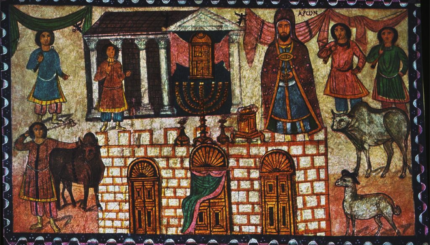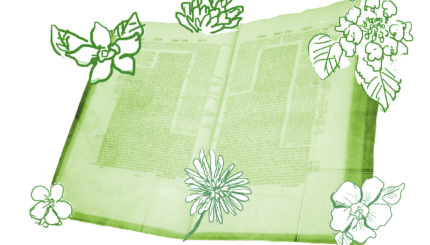Reprinted with permission from The JPS Guide To Jewish Women, (Jewish Publication Society).
Rivkah bat Meir Tiktiner, referred to most frequently as Rebecca Tiktiner, was first and foremost an educator of women. Her book of ethics, Meneket Rivkah (Rebecca’s nursemaid), was the first book written in Yiddish by a woman, and its main purpose was to teach ethical behavior.
Much of the book is taken up with advice concerning the care and education of children. She instructed mothers on how to encourage their sons to learn. Although the education of girls is not totally overlooked, daughters were placed firmly in the role of enablers. It is interesting to note that despite her own superior education, Rivkah does not advocate serious study for girls.
A Woman of Many Talents
Rivkah cautioned mothers not to expect too much from their children. She included a proverb, heard even today, advising the women: One mother can bring up ten children but ten children cannot feed one mother. In addition to being a writer and educator, Rivkah bat Meir was probably a preacher who may have traveled to other cities to lecture, teach, and preach. She may also have been a firzogerin, a leader of prayer for the women in the synagogue. It has been suggested that her book is made up of a collection of her lectures to women. Although Rivkahs work gives no personal information about husband or children, an item in the Sefer Hazkarot, a book of records from Prague, listed her husband as a donor to the synagogue. (Scholar Frauke von Rohden discovered this record in 2001 but could not decipher his name.)
Rivkah died in 1605 and is buried in Prague. Her book, Meneket Rivkah, survives in two copies, both published posthumously. A copy of the first edition, printed in Prague in 1609, is preserved in the library of the university at Erlangen, Cerrnany. A second edition, printed in Krakow in 1618, can be found in the library of the Jewish Theological Seminary in New York. Its title is a reference to the biblical story of Rebecca who brings her nurse (personal governess) with her when she leaves home to join Isaac, her new husband (Gen. 24:59, 35:8).
Learned & Practical
Rivkah bat Meir was familiar with both Hebrew and Yiddish literature. Her writing reflects her knowledge of many religious sources. These include Bible, Talmud, Midrash, and Yalkut Shimoni (a medieval midrashic anthology),as well as Hebrew ethical writings and Rashi’s commentaries. She used these sources in her own style, transforming them into poems, sayings, and stories that provided ethical advice and a general behavioural guide for women.
The printer of her book was astonished at Rivkah’s knowledge. In the preface to Meneket Rivkah he stated, "Who had heard of or seen such a novelty within our time that a woman had, on her own, become a learned person. And she read biblical verse and homiletical commentary. That is why I printed her book." The book was known to Christian scholars for several centuries after her death.
Rivkah bat Meir Tiktiner gave the following advice to mothers:
Sit in the house in order to hear how they [the boys] pray and say the blessings, and don’t depend on the rabbi. Also, the lessons that the mother learns [together] with her son are much more successful than what he learns later, as it says in the verse: "Listen, my son, to the tradition of your father and do not blot out the teaching of your mother."
And they ask in the Gemarah, why is it written the teachings of your mother and the tradition of your father? Because the father is involved in his business and is not found in his house except occasionally, and if he sees his son does not behave appropriately he disciplines him and teaches him moral lessons, but it is the responsibility of the mother, who is always in the house, to supervise her children and she has it in her hands to do many good deeds.
When he begins to learn one should arrange that he learn with joy. One time he should be given sugar, one time nuts, or bread spread with honey so that he should learn happily. When he becomes more intelligent he is told, "Child, live, be pious, and learn. [Then] I will make you fine clothes." When he becomes even more clever he is told, "if you’ll learn happily then you will become, God willing, an important young scholar and then they will give you a prominent scholar’s daughter with a great deal of money [to marry]. And you will become the head of a yeshivah [rabbinical academy]." When he achieves his complete intelligence he is told, "Dear son, learn for the sake of God. Then you can have this world and the world to come?"
Now I will speak about the education of daughters. Our sages said "if a daughter comes first, it is a good sign for sons." [This is] because she will be able to help the mother in the education of the children who will come afterward. Thus, every woman should try to educate her daughter to good deeds and don’t think "why does my daughter need to work, since I have enough money." But no man knows what the day will bring, as our eyes see. (Talmud Bava Batra 141a)
Rivkah
Pronounced: RIV-kuh, Origin: Hebrew, the biblical character Rebecca.


